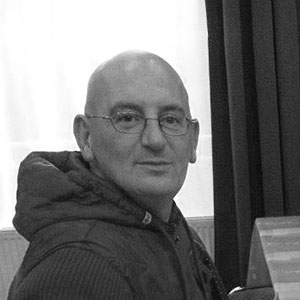Apparently the PokerStars Changes Actually Worked?!?!
9 years ago

16 Aug
To many players they were the most unpopular changes in the game of online poker since its inception, and they led to strikes and the prophets of doom declaring poker was on its way out.
I am talking, of course, about PokerStars wholesale changes to their VIP program and their subsequent hiking of table rake – factors which have seen the industry giant facing a barrage of criticism over the past year.
Some analysts, however, now believe that we are seeing the positive side of the changes, claiming that they are starting to ‘pay off’ – and we have just been looking at the wrong set of numbers.

Player numbers down, revenues up?!
Steve Ruddock, writing for Uspoker.com, stated this week that, “It took several months, but it appears PokerStars’ decision to shift its focus away from high-volume players and onto recreational players is starting to pay off,” citing the Amaya-owed company’s new CEO Rafi Ashkenazi’s ‘4% revenue increase’ in quarter 2.
To Ruddock, it is this revenue number which is important – and not the ‘cash game traffic’ figures which have traditionally been used to determine the health of a site and the game overall; traffic numbers are down, which supporters of the boycotts held earlier this year against PokerStars say is a sign that the site made a terrible decision to attack its regular players.

Where did the $80million go?
He also quotes Ashkenazi’s statement that there has been “no negative revenue impact from high revenue players,” but later shows numbers which reveal player deposits on hold by the site - basically the amount of money in the PokerStars bank – have fallen by a massive $78million in just six months!
The former is seen as a huge positive, the latter as a temporary blip – a blip which Ruddock claims was:
Money which was unlikely to ever see the light of day at the site’s tables.”
Well, correct me if I’m wrong, but back at the turn of the year we were told that the proportion of players the changes would affect were minimal – so we’re being asked to believe that the 2% of the players in December were sitting on close to 20% of their total deposits? And they have all cashed out? Hmmm, something sound a bit off!

I should be so lucky!
Of course, numbers and statistics can be used to argue almost anything, and the fact that revenues are up doesn’t tell the whole story or even close to it. “Bankrolls from recreational and casual players are lasting longer,” might sound like a jolly good deal for players – but this is only because weak players are passing the money between themselves for longer, before ultimately paying it to PokerStars through increased rake.
Of course some players will get lucky, and introducing new games – the incredibly popular Spin & Go for example – might well generate more revenue, but it’s this lottery-style game which is increasingly appearing across the online poker world, and the ‘educated’ player is being left out. As fans of Star Trek might say:
It’s poker Jim, but not as we know it!"

Health or wealth?
The health of a game can’t be argued on numbers alone –particularly not when the numbers are hugely weighted in the site’s favor (profit before all else) and increasingly against poker being a viable profession. Complete beginners can win a million bucks and 20-year veterans of the game can’t pay their bills and have to find a new job!
Well, Ruddock may not be wrong in his assessment of the new figures, which had to be released after David Baazov left the company under a dark cloud last week – but I’m not convinced turning poker into a card-shaped lottery is a great idea.
Poker players have always claimed it is not a game of luck. Those working tirelessly to have it accepted as a game of skill, if Ruddock’s approach is correct, are now one step further away from making that argument stick.
Much as I admire Ruddock’s poker journalism in general, he is keen to talk about the ‘long-term’ view which PokerStars always claimed was their goal – ‘to improve the poker eco-system’ being the phrase bandied about late last year and ever since.
Six or seven months down the line is most definitely not long-term in my opinion and for me the numbers still don’t add up to positive changes






Comments
You need to be logged in to post a new comment